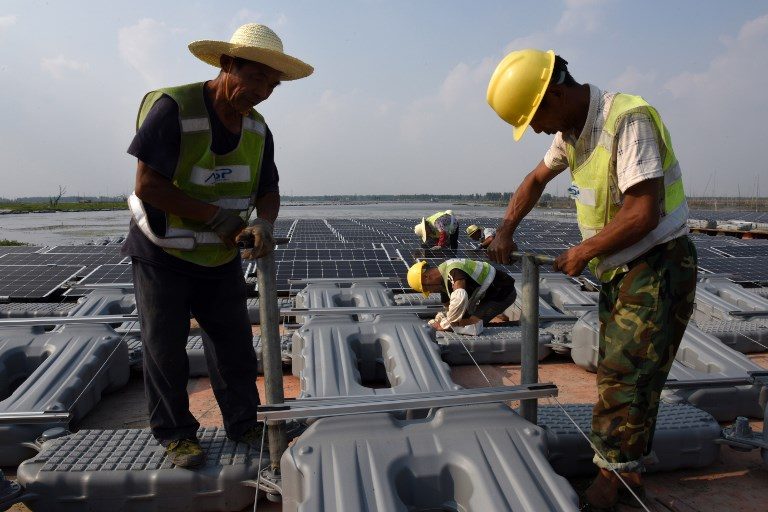SUMMARY
This is AI generated summarization, which may have errors. For context, always refer to the full article.

PARIS, France – Multinationals worth $3.5 trillion and financial institutions managing $25 trillion in assets pledged on Thursday, June 29, to follow new guidelines for disclosing exposure to climate change risk in both operations and investments.
Spearheaded by former New York mayor Michael Bloomberg, recommendations by the Task Force on Climate-related Financial Disclosures should help shareholders determine if businesses are aligned with the global shift toward a low-carbon economy, and not unduly burdened with assets that could be stranded during that transition.
“Climate change present global markets with risks and opportunities that cannot be ignored, which is why a framework around climate-related disclosures is so important,” Bloomberg said in a statement.
“The Task Force brings that framework to the table.”
Financial and insurance companies whose CEOs have endorsed the recommendations, laid out in a 75-page report, include Bank of America, Barclays, AXA Group, Allianz SE, and Industrial and Commercial Bank of China.
Industrial powerhouses such as Unilever, Dow Chemical Company, Tata Steel and PepsiCo have also backed the move towards climate transparency, along with the “Big Four” professional services giants, and ratings agencies Moody’s and S&P Global.
Royal Dutch Shell is, so far, the only oil and gas company to tender its support.
The fossil fuel industry is especially vulnerable to questions about climate risk as the race to decarbonize the world economy gathers pace.
A report released earlier this week found that, on average, 30% of investments planned by 69 oil and gas majors over the next decade – worth more than $2 trillion (two trillion euros) – could be wasted if the world economy retools to cap global warming at two degrees Celsius, researchers warned Wednesday.
The 2ºC (3.6 degree Fahrenheit) target is the cornerstone of the 196-nation Paris Agreement, inked in 2015.
G20 endorsement in doubt
Major energy companies are already under growing pressure from investors to explain how global warming – and the shift to a low-carbon economy – will affect their bottom lines.
Last month, three-fifths of ExxonMobil shareholders defied the board and voted for the company to report annually on how new technology and 2ºC policies will affect business and investment plans.
Weeks earlier, a majority of Occidental Petroleum shareholders called for similar measures.
The climate Task Force was set up in December 2015 by the Financial Stability Board (FSB), itself an advisory body established after the 2009 G20 summit to oversee the global financial system.
“The Task Force’s recommendations have been developed by the market for the market,” said FSB Chair and Bank of England Governor Mark Carney, whose September 2015 speech outlining the risks posed by climate change rattled the financial industry.
The 32-member climate task force spent 18 months consulting, looking at both how climate-relevant data could be gathered and used by business.
Homogenising existing standards was a challenge, said Christian Thimann, Group Head of Regulation, Sustainability and Insurance Foresight at AXA Group, and one of four vice chairs of the Task Force.
“We counted up to 400 different reporting frameworks” already in existence, he told Agence France-Presse.
“If we are successful, in a few years you will see that every large corporation in G20 countries – in its annual financial report – will have a section that say, ‘This is how we deal with climate risks and opportunities’.”
The Task Force recommendations were on track to be adopted by the July 7-8 G20 summit in Hamburg, Germany until real estate mogul Donald Trump was elected president of the United States.
But after Trump’s decision to withdraw from the Paris Agreement, and his refusal to join a climate consensus at a G7 summit in late May, such an outcome seems doubtful. – Rappler.com
Add a comment
How does this make you feel?





There are no comments yet. Add your comment to start the conversation.